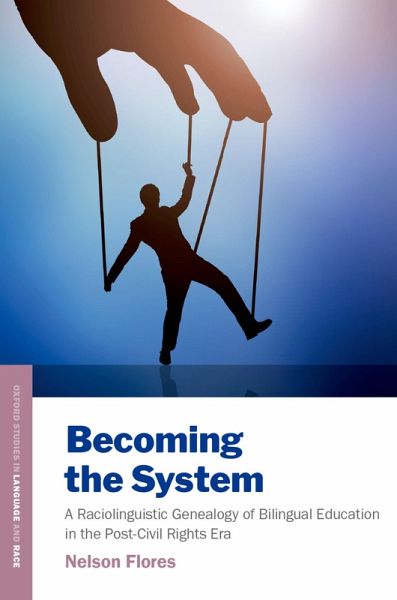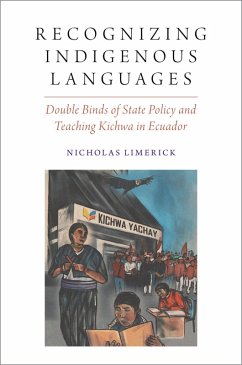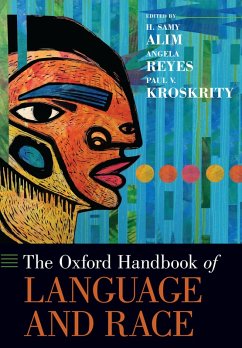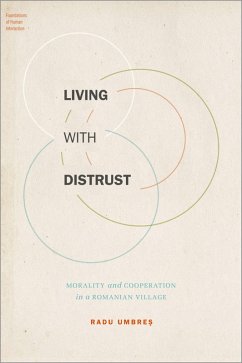
Becoming the System (eBook, PDF)
A Raciolinguistic Genealogy of Bilingual Education in the Post-Civil Rights Era
Versandkostenfrei!
Sofort per Download lieferbar
48,95 €
inkl. MwSt.
Weitere Ausgaben:

PAYBACK Punkte
24 °P sammeln!
Bilingual education is usually framed as a tool of antiracism. In Becoming the System, author Nelson Flores challenges that framework by examining the ways that institutionalizing bilingual education in the post-Civil Rights Era in the United States has served to maintain rather than challenge racial hierarchies. He adopts a methodology that he terms raciolinguistic genealogy as a point of entry for arguing that the institutionalization of bilingual education was part of a broader reconfiguration of race in the postcolonial era. This reconfiguration located the root of racial inequities within...
Bilingual education is usually framed as a tool of antiracism. In Becoming the System, author Nelson Flores challenges that framework by examining the ways that institutionalizing bilingual education in the post-Civil Rights Era in the United States has served to maintain rather than challenge racial hierarchies. He adopts a methodology that he terms raciolinguistic genealogy as a point of entry for arguing that the institutionalization of bilingual education was part of a broader reconfiguration of race in the postcolonial era. This reconfiguration located the root of racial inequities within a psychologically damaged racialized subject who, after having experienced multiple generations of racial oppression, had either from a liberal perspective developed a culture of poverty or a radical perspective developed colonized mindset that prevented racial progress. After examining the ways that this psychologically damaged racialized subject provided the ideological foundation for the Bilingual Education Act (BEA), Flores then examines how institutionalizing the BEA produced a cadre of Latinx professionals who were afforded contingent proximity to whiteness in exchange for their acceptance of deficit framings of Latinx communities. He goes on to examine the ways that this institutionalization helped pave the way for neoliberal educational reforms that serve to maintain the racial status quo. This has culminated in the exponential growth of dual language education as a commodity for affluent monolingual white families even as the bilingualism of Latinx communities continue to be pathologized and policed. Flores concludes by implicating himself as a Latinx professional working in bilingual education in this political incorporation and posits the present volume as resistance to the commodification and weaponization of Latinx bilingualism.
Dieser Download kann aus rechtlichen Gründen nur mit Rechnungsadresse in A, B, BG, CY, CZ, D, DK, EW, E, FIN, F, GR, HR, H, IRL, I, LT, L, LR, M, NL, PL, P, R, S, SLO, SK ausgeliefert werden.













